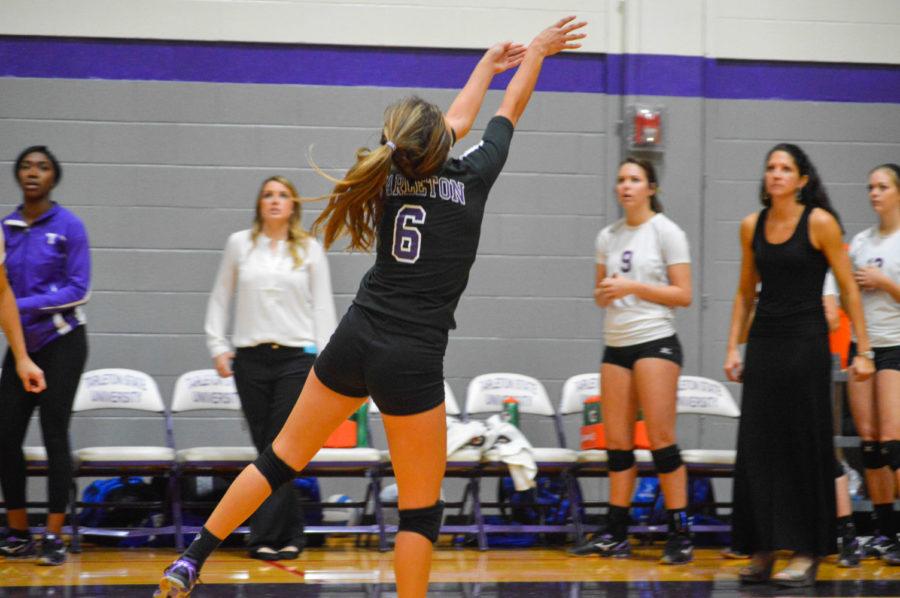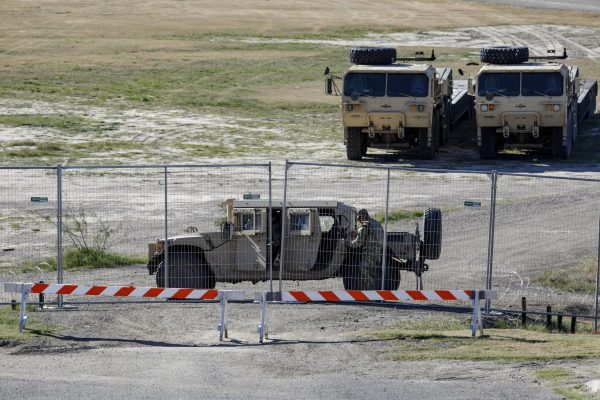Update: Tarleton continues DI discussion
Tarleton sports has performed well this year, including the TexAnn volleyball team which took home the LSC championship.
November 17, 2015
With a men’s basketball team sitting in the No. 1 spot in the nation, a volleyball team at the top of the Lone Star Conference, a football team setting records this season and men’s and women’s cross country teams that were ranked at No. 9 in the South Central Region earlier this fall, Tarleton State University athletics have been put on the map in the last few seasons. The men’s basketball team was even invited to play an exhibition game against the University of Texas, a Division I team, over the weekend. In response, Tarleton has begun the discussion of whether or not a move from Division II to Division I athletics would be possible or pertinent.
“For the past two years, we have been assessing the advantages and disadvantages of a possible move to NCAA Division I athletic competition,” said Tarleton President Dr. F. Dominic Dottavio in an email to the student body in October. “Discussions took place in January at the annual president’s planning meeting and in March through open forums with faculty, staff and students.”
The forums revealed several factors that come into play in these discussions, including the stability of the LSC, funding, how Tarleton’s facilities compare to those of other DI schools, and how a move to DI might increase Tarleton’s marketability and visibility in the nation.
“The stability of the LSC was a major reason for re-activating the discussion from twelve years ago about the possibility of moving to Division I,” said Dottavio. “In recent months, the LSC has been stabilized by the addition of several new universities to the conference.”
A move to DI would require a significant athletic budget increase of several million dollars.
“[We] believe it would require $12 million a year to support D1, up from $7 million now, and that we could achieve such a budget through a variety of possible mechanisms as discussed,” said Tye Minckler, Vice President for Finance and Administration, in an email to JTAC News.
Theoretically, the budget deficit could be made up through a variety of sources – a possible 10% increase in the athletic fee, which would be expanded to Tarleton’s other campuses as well; a game day parking fee to park at Memorial Stadium; ticket sales; renting the stadium to school districts; and corporate sponsorships, among others, which Minckler elaborated on:
“Student enrollment growth over four years is also a source of new money, and we would also ask the System for additional PUF funding which would help free tuition that is spent to help maintain buildings,” said Minckler. “There is also NCAA media revenue and other forms of support. So altogether these sources could generate more than $5 million, therefore in themselves provide some contingency. To the extent that we fall short, the athletic program would not have the funds they want and feel are necessary to be competitive. But there is a great deal of variability in athletic budgets from school to school anyway.”
A move to DI would also required an increase in athletic scholarships, raising concern at an open forum on October 21 that this could impact the number of academic scholarships offered by the university. Minckler, however, said that is not the case.
“[The] increase in athletic scholarships would not mean less academic scholarship,” Minckler said.
In his email, Dottavio seemed confident that Tarleton’s planned facility updates would bring the university up to par with other DI institutions.
“Our facilities, with the upgraded tennis courts, compare favorably with those of other Division I schools with which we would compete,” said Dottavio. “Our plans to upgrade the football stadium and track facilities further enhance our viability.”
Finally, a move to DI would likely escalate Tarleton’s already steadily increasing visibility within the nation.
“Division I would enhance the university’s profile and provide better branding and marketing opportunities, including potential national television exposure,” said Dottavio. “Competing against better known universities would give us an enhanced opportunity for corporate sponsorships, and alumni and community involvement.”
Minckler said that at the end of the day, the possibility of moving to DI is still just an idea.
“[We] have not gotten an invite,” Minckler said, “and we have not made a decision.”
Regardless of the feelings of the Tarleton community, the university would first have to be invited to join a Division I conference, which at this time has not happened. Presumably, discussions will continue until a conclusion can be reached and a move to DI has been deemed plausible.





